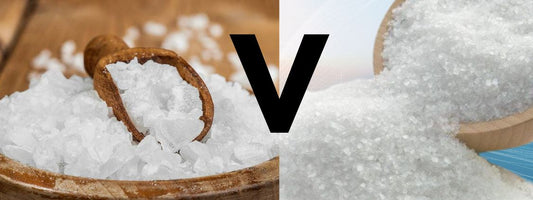In our modern, stress-filled lives, finding effective ways to unwind and care for our bodies has become increasingly important. Magnesium bath salts have emerged as a popular choice for relaxation and self-care, touted for their therapeutic properties and numerous health benefits. But what exactly makes magnesium bath salts so beneficial, and how do they work to enhance our well-being? Let's explore the science behind these soothing salts.
Magnesium is an essential mineral that plays a vital role in numerous physiological functions within the body. It is involved in over 300 enzymatic reactions, including energy metabolism, protein synthesis, and muscle and nerve function [1]. Despite its importance, research suggests that a significant portion of the population may be deficient in magnesium due to factors such as inadequate dietary intake and increased stress levels [2].
One of the primary mechanisms through which magnesium bath salts benefit the body is transdermal absorption. When dissolved in warm bathwater, magnesium salts, such as magnesium sulfate (Epsom salt) or magnesium chloride, allow magnesium ions to be absorbed through the skin's pores [3]. This method of absorption bypasses the gastrointestinal tract, which can be beneficial for individuals with digestive issues or those who have difficulty absorbing nutrients orally.
The relaxation and stress-relief benefits of magnesium bath salts are well-documented. Magnesium plays a crucial role in modulating the activity of the parasympathetic nervous system, which is responsible for promoting relaxation and reducing stress [4]. By increasing magnesium levels in the body, bath salts can help activate this system, leading to feelings of calmness and well-being.
Moreover, magnesium bath salts have been shown to alleviate muscle tension and soreness, making them popular among athletes and individuals with physically demanding lifestyles. Magnesium is involved in muscle contraction and relaxation, and insufficient levels of this mineral can contribute to muscle cramps and discomfort [5]. By soaking in a bath infused with magnesium salts, individuals can help relax tense muscles, reduce inflammation, and promote faster recovery after exercise.
In addition to their muscle-relaxing properties, magnesium bath salts offer skin-nourishing benefits. Magnesium has been found to support skin health by improving hydration, reducing inflammation, and stimulating collagen production [6]. Regular use of magnesium bath salts can help keep the skin soft, smooth, and radiant, making them a valuable addition to any skincare routine.
Furthermore, magnesium bath salts may provide relief for individuals suffering from conditions such as arthritis, fibromyalgia, and migraines. Research suggests that magnesium supplementation can help reduce pain and improve joint mobility in arthritis patients [7]. The relaxation and stress-relief benefits of magnesium may also help alleviate symptoms of fibromyalgia and migraine headaches [8].
In conclusion, the science behind magnesium bath salts underscores their potential to promote relaxation, ease muscle tension, nourish the skin, and alleviate various health conditions. Incorporating magnesium bath salts into your self-care routine can be a simple yet effective way to support your overall well-being. However, it's essential to consult with a healthcare professional before using magnesium bath salts, especially if you have any underlying health concerns or are pregnant.
References:
1. "Magnesium in Human Health and Disease." Nutrients. 2015. https://www.ncbi.nlm.nih.gov/pmc/articles/PMC4586582/
2. "Magnesium in Stress and Depression." Nutrients. 2017. https://www.ncbi.nlm.nih.gov/pmc/articles/PMC5452159/
3. "Transdermal Absorption of Magnesium." Magnesium Research. 2007. https://pubmed.ncbi.nlm.nih.gov/18072821/
4. "Role of Magnesium in the Parasympathetic Nervous System." Journal of Clinical Biochemistry and Nutrition. 2007. https://www.ncbi.nlm.nih.gov/pmc/articles/PMC2129161/
5. "Magnesium in Prevention and Therapy." Nutrients. 2015. https://www.ncbi.nlm.nih.gov/pmc/articles/PMC4586582/
6. "Magnesium and Skin Health." Nutrients. 2018. https://www.ncbi.nlm.nih.gov/pmc/articles/PMC5579607/
7. "Efficacy of Magnesium in Arthritis." Nutrition Reviews. 2010. https://pubmed.ncbi.nlm.nih.gov/20136470/
8. "Magnesium in the Central Nervous System." University of Adelaide. https://www.adelaide.edu.au/press/titles/magnesium/magnesium-ebook.pdf






